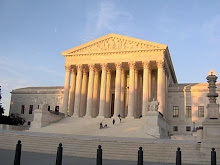Earlier this week, news broke that Prince Harry has been serving in Afghanistan with the British army and that the media knew about it but had agreed to withhold the story until after the deployment was over. He has since returned home from the mission because once the new broke, it was determined that it would not be safe for him to remain there. I'll admit that I saw the report about Harry on CNN while I was getting dressed Thursday morning and did not pay much attention. The news broke too late to make my paper edition of The New York Times, and frankly, I don't care much about the royal family, so I didn't read any of the stories online. Somehow, I missed the part of the CNN broadcast where they reported on the side of the story that should interest me as a journalist.
My classmate Kate posted about this on Thursday, which is what prompted me to go check the story out for myself (I haven't read the Drudge Report yet). I did head over to Poynter Online to see if the writers of "Everyday Ethics" had anything to say. I was happy to find that Bob Steele did write an article on the media's agreement with the miliatry . ...
Steele
brings up several things I did not know after reading about this only in passing. My biggest concern was whether the media should be revealing where Prince Harry was stationed, given the danger to his fellow soldiers (less of an issue now that he's returned home). Steele's focus is mainly on whether the media had justification for agreeing to withhold information for so long (four to six months).
Steele's main argument is something that I had missed. Apparently, the prince was deployed only AFTER the media agreed to keep it a secret, and the British military promised that the prince would be available for interviews that could be made public after his deployment:My primary concern is with the news organizations that played along with this secret deal.
Especially when you add in a revealing quid pro quo piece of the puzzle, any arguments for ethical responsibility further erode. In exchange for the media's silence, the British military agreed to provide the news organizations with favored treatment
As Satchwell wrote in The Guardian, “In return there would be special access for the media to the prince before, during and after his deployment which could be reported when he returned home, without any interference by the Royal family or the military except for reasons of operational security.”
Trading secrecy for access. That stinks.
It gets worse. More from Satchwell: “It was an extraordinary and rare display of unity for national and regional newspaper and magazine editors and broadcasters not to report the story.”
Unity? Hardly. It sounds more like a conspiratorial cabal.
Hiding behind false logic, the news organizations involved in this deal failed their readers and viewers and delivered a serious hit to the principle of journalistic independence.
So. The question is, is there ever a time at which journalists should agree to withhold a story for such a long period of time? I definitely agree with Steele that journalists should never come to such an agreement with any source, but I still think it is important to ask whether the public's right to know that the Prince is in Afghanistan outweighs the security risk posed by revealing the information.
I agree that the media's motives in making a deal are highly suspect, but would this be worse if the media had said "We care about the safety of the soldiers and we will not accept bribes, but we will withhold the story?" Journalists are never supposed to accept any type of gifts or special treatment from sources, but I wonder which is worse: the potential harm to those deployed with Prince Harry or the harm to the profession from "trading secrecy for access."

No comments:
Post a Comment